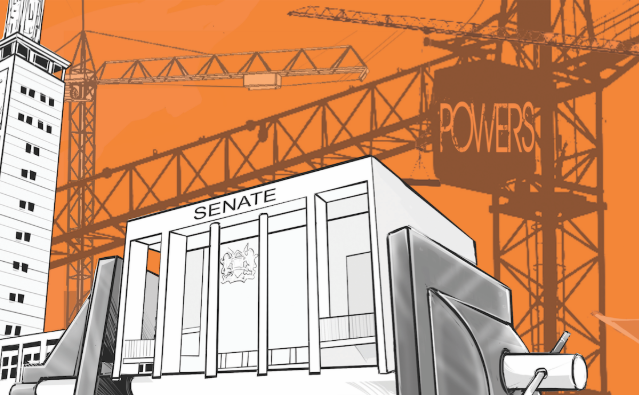
County governments may soon receive increased funding following a new push in the Senate to revise the revenue-sharing framework between the national and devolved units.
The Senate Finance and Budget Committee is advocating for a shift from the existing model to one that allocates funds based on the actual cost of devolved functions.
Under the constitution, counties are entitled to at least 15 per cent of the most recently audited national revenue.
However, senators argue this blanket percentage fails to reflect the true financial demands of functions assigned to counties, leading to implementation inefficiencies.
“We strongly believe that functions must be properly costed. We should not continue talking about 15 per cent without knowing the real cost of delivering these services,” said Migori Senator Eddy Oketch, a member of the committee.
Oketch noted that the viability of many counties is undermined by a stark mismatch between their responsibilities and available resources.
“This is something we are actively working on as a committee to ensure revenue allocation is based on the actual cost of the functions.”
He cited healthcare – a fully devolved function – as a prime example of chronic underfunding, even as billions of shillings remain with the national Ministry of Health.
Oketch made the remarks during a meeting of the Senate Public Investments and Special Funds Committee, where he serves as vice chair.
The committee met with Makueni Governor Mutula Kilonzo Jr, who also chairs the Council of Governors’ Legal Affairs committee, to address audit queries on hospital operations in the county.
Mutula highlighted the financial strain counties face in managing the health sector, which consumes nearly half of the budget in some of the devolved units.
“Despite huge allocations, healthcare facilities remain underfunded, grappling with inadequate personnel and essential supplies, which undermines service delivery,” he said.
In Makueni, 38 per cent of the budget is allocated to health. Of the county’s 3,900 workers, 2,200 are in the health department.
Mutula urged the Senate to require the Intergovernmental Relations Technical Committee (IGRTC) to provide an update on the costing and transfer of devolved functions.
IGRTC is mandated to oversee the unbundling, costing and transfer of devolved functions from the national to county governments.
“In 2013, we allocated nearly Sh1 billion – precisely Sh900 million – to IGRTC for this purpose. The Senate must summon them to account for their progress,” he stated.
Last month, IGRTC CEO Kipkirui Chepkwony announced that counties are expected to take over all remaining devolved functions – valued at over Sh150 billion – by July next year.
This follows the identification and alignment of related human and financial resources.
“This process will enable financial transfers beginning in the 2026/27 budget cycle,” Chepkwony said.
He also noted that several laws would be amended to align with the current constitutional framework.
Two years ago, IGRTC estimated that devolved functions still retained by the national government were worth Sh272 billion.
In May, the Ministry of Devolution and Intergovernmental Relations held talks with IGRTC over delays in function transfers. The meeting focused on 18 state corporations identified for devolution under the constitution.
Senate committee chair Mohamed Abass expressed concern over the sluggish pace of devolution, 15 years after its rollout.
The Wajir Senator noted that key functions – such as health, agriculture, water and urban development – remain largely under national government control, in contravention of constitutional directives.











